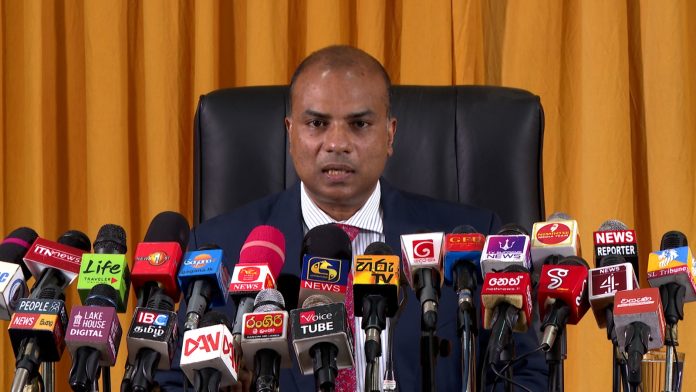Director General of the Commission to Investigate Allegations of Bribery or Corruption (CIABOC), Ranga Dissanayake, revealed today (2) the Ministry of Finance has refused to fulfil its obligations under the Anti-Corruption Act to approve staff appointments for the Commission.
“The Anti-Corruption Act clearly states in Section 31 that the Commission must recruit its staff independently and present its budget estimates to Parliament. But the Finance Ministry has informed us that Section 31 has no effect and that they will act under the Public Financial Management Act,” Dissanayake said.
Dissanayake emphasised that CIABOC is not a government arm but an independent institution, and warned that the current situation could force the Commission to seek constitutional interpretation.
“I have struggled for eight months to get staff approved. I even made a direct request to the Speaker, who finally decided to seek the Attorney General’s opinion to resolve this legal dispute. We are still waiting for that opinion. If necessary, we will have to go to the Supreme Court for clarification,” he explained.
He also noted the severe shortage of staff is crippling investigations. While the Commission has received 4,626 complaints as of 31 August, only 169 police officers are available to investigate them, alongside 31 legal officers. “This institution is the only one that both investigates and files cases. We are overwhelmed,” he said.
Citing ongoing complex investigations such as the MV X-Press Pearl disaster and probes into the economic crisis, the CIABOC DG said the lack of resources is a major obstacle. “People trust us and come to us with complaints. Our responsibility is to ensure justice. But undermining our independence is undermining public confidence itself,” he stressed.
Responding to questions on whether the obstruction can be considered direct interference by President Anura Kumara Dissanayake as he is the Minister of Finance, he said:
“Conceptually, yes. I even sat with the President at the same table for discussions. At no point did the Finance Ministry mention they would later interpret this under the Public Financial Management Act. If they had said so from the beginning, the legal issue could have been resolved earlier.”
He added that under the Act, CIABOC can also seek local or foreign donations with the approval of the Finance Minister, which would then be managed independently by the DG. “We are exploring whether this is a practical option, though we must be cautious about who provides such funding,” he noted.
Meanwhile, Dissanayake revealed that Chief Justice Preethi Padman Surasena has already established a dedicated High Court to expedite bribery cases, with 276 cases transferred there, and a second special court is also being set up.
CIABOC also plans to expand its presence across the country, with proposals to establish 24 district offices and recruit 967 staff members, including investigators. However, the Finance Ministry is yet to approve the required salaries and cadre.
“This is the unseen struggle — the public sees the complaints and expects results, but inside, our officers are battling enormous difficulties to keep this institution alive,” Dissanayake concluded.




